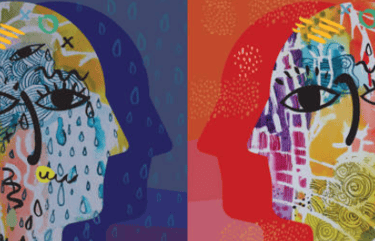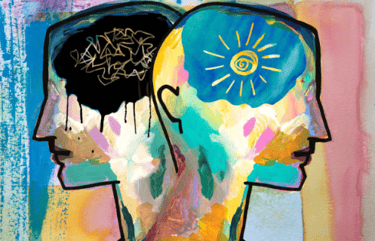Treatment
Reasons For Seeking Psychotherapy
Psychotherapy can help you…
If you struggle to form or maintain close relationships.
If you feel uncertain or conflicted about your sexual orientation or desires.
If you experience uncertainty or confusion about who you are.
If you are troubled by feelings of isolation, emptiness, depression or lack of purpose.
If you often feel nervous, experience panic, or live under constant stress.
If you went through distressing experiences in childhood or adulthood.
If you notice impulsive or recurring body pains or discomfort without a clear medical cause.
If you encounter challenges in your education or career progress.
If you experience unexplained physical issues that may reflect emotional struggles.
If you feel caught up in sadness or persistent anger.
If you are struggling with grief, loss, or bereavement.
If you are disturbed by frequent nightmares or distressing dreams.
The list above suggests some examples of concerns some people have when they decide to work with a psychotherapist, but the problems any one person approaches through their psychotherapy is always very personal to them.




Psychodynamic Psychotherapy
What Is It?
Psychoanalysis began over a hundred years ago with Sigmund Freud. Since then, the approach has developed and changed, but the heart of psychotherapy is still the same: talking about our thoughts and feelings can help us heal. This kind of therapy looks at the deeper parts of our personality, where many of our struggles often begin.
We all find ways to push away painful emotions or uncomfortable thoughts, trying to block them out. Psychodynamic therapy helps us notice when this is happening and understand how it shapes our everyday lives. It’s not a 'quick fix.' Emotional pain is very real and can last for a long time, affecting our relationships, our work, and our daily routines. But when we start to understand where our struggles come from, it’s possible to break the patterns that keep us stuck. This takes time, patience, and commitment.


How is it different from other therapies?
Many therapies aim to reduce symptoms quickly. Psychodynamic psychotherapy is usually longer-term, with the goal of making deep and lasting changes in how we feel, think, and relate to others.
Is it right for me?
This type of therapy is often most helpful for people who are curious about themselves and open to exploring how their mind works.


Some areas of psychotherapy I deal with:
Abortion, Abuse, Academic difficulties, Addiction, Attention Deficit Hyperactivity Disorder (ADHD), Adoption, Affairs and betrayals, Alcoholism, Anger management, Anorexia nervosa, Antisocial personality disorder, Anxiety, Avoidant/restrictive food intake disorder (ARFID), Attachment disorder, Autism, Avoidant personality disorder, Baby loss, Behaviour problems, Bereavement, Betrayal, Binge-eating disorder, Bipolar disorder, Blended family, Boarding school syndrome, Body dysmorphic disorder (BDD), Borderline personality disorder (BPD), Bulimia nervosa, Bullying, Burnout, Cancer, Career , Childhood bereavement, Childhood bullying, Childless not by choice, Chronic fatigue syndrome/ME, Chronic illness, Climate and eco-anxiety, Dementia, Dependent personality disorder, Depression, Discrimination, Dissociation, Domestic abuse, Donor Conception, Eating disorders, Emotional abuse, Family issues, Feeling sad, Gambling, Gender dysphoria, Generalised anxiety disorder (GAD), Genetic Sexual Attraction (GSA), Health anxiety, Hearing voices, High sensitivity, Histrionic personality disorder, Hoarding, Infertility, Internet addiction, Jealousy, Learning difficulties, Learning disabilities, LGBTQ+ , Loneliness, Low self-confidence, Low self-esteem, Menopause, Mental health, Miscarriage, Money, Narcissistic abuse, Narcissistic personality disorder, Neurodiversity, Non-monogamy, Obsessive compulsive disorder (OCD), Obsessive-compulsive personality disorder, Older people's counselling, Panic attacks, Paranoia, Paranoid personality disorder, Passive-aggressive behaviour, Perfectionism, Personality disorders, Phobias, Physical abuse, Polyamory, Post-traumatic stress disorder (PTSD), Porn addiction, Postnatal depression, Pregnancy and birth, Psychosis, Race and racial identity, Racism, Redundancy, Relationship problems, Schizoid personality disorder, Schizotypal personality disorder, Seasonal affective disorder (SAD), Self-harm, Separation and divorce, Separation anxiety, Sex addiction, Sex problems, Sexual abuse, Sexual assault, Smoking, Social anxiety, Spirituality, Stress, Suicidal thoughts, Tourette's syndrome, Trauma, Trichotillomania, Work-related stress, among many more. . .
Psychotherapy
To find out more, you can make an enquiry by email, phone or by using the contact form.
Please include a few details about yourself and what you think you would like from the treatment.
Contact
Location
+44 7907 804022
© 2025. All rights reserved.
Therapy Rooms Exeter, Argyle House, Gandy St, Exeter EX4 3LS
henry@averillpsychotherapy.co.uk








